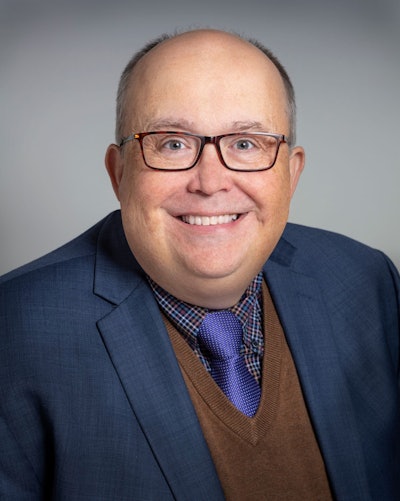“You are worthy of your dreams.”
This is my unchanging message to my students as their president, never more important than during and after the COVID-19 pandemic.
West Virginia University at Parkersburg, because of its mission and location, is often the only higher education option for our students, most of whom come from a rural, economically bleak beginning, many of whom are first-generation and need frequent reminders of their worth.
To succeed, they must trust that their president believes in them and is willing to give as much as I require.
If I believe in their dreams, actually and not just rhetorically, then never has my call to servant leadership been timelier. If you believe, then never has our responsibility to rise to the challenge of leading been more urgent. Never will we need to focus more clearly on one skill—empathy—for without it, we will not remain relevant to our students.
I do not want them to see me as an unapproachable, mythological figure separated by multiple doors and several assistants, a detached representation of the “other” in a suit and tie, wearing the college medallion at commencement and not knowing any of the people to whom he is awarding degrees.
I want to hear their stories. For them to be willing to share, I must simultaneously step off of my pedestal of privilege while lifting them up to it, if only for a moment, if only to give them a glimpse of what hard work and the sacrifices of the elders created in my own life, a first-generation student born into multi-generational poverty. I have to humanize myself before them, to become a tangible and realistic role model, a role model not only of things done right, but of things done very wrong and the lessons learned in failure.
 Dr. Chris Gilmer
Dr. Chris GilmerTo those students who are losing loved ones and fearing for their own lives during the COVID-19 crisis, I say that I was a gay man coming of age in a rural, conservative state in the middle of the AIDS crisis, that I lost friends who died before their lives ever really started, and that there but for the grace of God go I. What some might hide in shame, I must never get in the way of the single most important gift I can give my students—the imperfect, yet persistent and unvanquished example of my own life.
I hear much about the academy’s desire for our students to be better prepared academically, but I also understand the many reasons why they are not. Some of them are hungry. Worse, some have hungry children. Try to pay attention in class while worried about your child’s next meal. Some take public transportation, and thankful as they are for it, its schedule is insufficient. Some are homeless. Some work two jobs. Some are addicted to drugs or recently in recovery. Many have mental health issues, diagnosed and undiagnosed, brought on by these and other challenges.
Some are transgendered. Some are veterans. Some are afraid of being deported, or racially profiled, or stabbed because they look vaguely like someone from a nation blamed for starting COVID-19. Yes, this really happens in America, and the list goes on.
It is past time that we put away the fantasy of the students we want to teach and confront with the students we are called to teach the realities they face daily. It is less their job to be college-ready than it is our job to be student-ready. I speak with authority as a survivor of gay prejudice who has proudly served three Historically Black Colleges and Universities (HBCUs), a Hispanic-Serving Institution (HSI), a non-traditionally focused online university, and now an Appalachian community college/university hybrid. Few leaders have been privileged to observe the struggles of our most vulnerable students, and often our most determined ones, from more diverse perspectives.
On the other side of this crisis, we have the opportunity to do something my mama taught me. As a child, I asked, “Mama, how do I become great?”
She looked at me and said, without hesitation, “Baby, the only way to be great is to try to be good, all day, every day. And when you fail, and you will, get up the next day and try again.” This wisdom came from a woman born on the kitchen table of a cotton shack to sharecropper parents, but who taught her children that we are worthy of our dreams.
We hear a lot about making America great again. If we apply my mother’s definition, we have problems because America has stopped being good. Certainly many Americans individually display amazing acts of goodness, but for us as a nation, I worry. Also, I hope more than I worry.
I hope the mirror that this global crisis causes us to hold up to ourselves, individually and collectively, will force us to hear what Mama told me all those years ago. There is still time for us to help our students live into the worthiness of their dreams.
Dr. Chris Gilmer is the president of West Virginia University at Parkersburg and founder of the National Institutes for Historically-Underserved Students.
Here is a link to a video Gilmer made for his students: https://www.wvup.edu/news/a-personal-message-from-president-gilmer/.
















